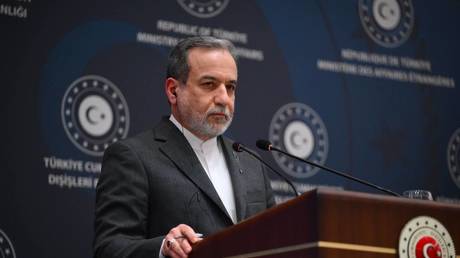
Brussels is reportedly considering whether to subject the Russian-made platform to its ‘disinformation’ laws
EU officials are considering listing Telegram as a “very large online platform,” a move that would open the privacy-focused messaging app up to stringent censorship rules, Bloomberg reported on Tuesday.
Bloomberg’s report cited anonymous sources who claimed that Brussels has reached out to Telegram in a bid to establish how many people regularly use the platform. Telegram claims that it has around 41 million monthly active users, a figure that places it below the EU’s 45-million-user threshold for strict regulation under its Digital Services Act (DSA).
The European Commission currently counts 19 “very large online platforms” and search engines, including Amazon, Facebook, Instagram, and TikTok.
Under the terms of the DSA, these platforms must label all advertisements as such, avoid targeting ads at users based on “sensitive data” such as their ethnicity, sexuality, or political orientation, and build in features to protect the “privacy, security, and safety of minors,” according to the European Commission.
Platforms are also required to restrict the “dissemination of illegal content” and “address the spread of disinformation.” The entire text of the DSA mentions the word “disinformation” 13 times without defining it. Free-speech activists have argued that the term is often used by governments to silence factually correct yet politically inconvenient narratives.
The DSA came into effect earlier this year and allows the EU to fine platforms as much as 6% of their global annual turnover if they break its rules. The law also allows repeat offenders to be banned from operating in the bloc.
Telegram’s Russian-born owner, Pavel Durov, has insisted that he respects the rights of Telegram users to privacy and freedom of expression. In an interview with American journalist Tucker Carlson released last month, Durov said that he refused requests to share user data with the US government or to build so-called surveillance “backdoors” into the platform.
Like WhatsApp or Messenger, Telegram allows users to send private and group messages. Unlike its American competitors, it also allows users to set up ‘channels’ to disseminate news and updates to followers. Last month, Ukraine’s top spy, Kirill Budanov, criticized Telegram for allowing anonymous channels to publish information about the conflict in contravention of Kiev’s censorship regime.
According to statistics compiled by SimilarWeb, Telegram is the most popular messaging app in Ukraine. Budanov argued that this poses a “huge problem” to Kiev’s efforts to limit the flow of damaging information from the battlefield.




